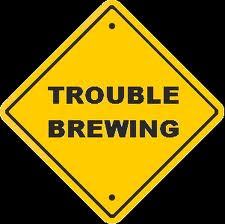Quadratic trouble#2

If one root of the equation is double the other and l is real then find the greatest value of m .
Try my other algebra problems here
The answer is 1.13.
This section requires Javascript.
You are seeing this because something didn't load right. We suggest you, (a) try
refreshing the page, (b) enabling javascript if it is disabled on your browser and,
finally, (c)
loading the
non-javascript version of this page
. We're sorry about the hassle.
Since we have one of the roots double the other let's call them r, 2r we can transform the equation by divding (l-m) \not necessary step
( l − m ) x 2 + l x + 1 = 0 ⟹ x 2 + ( l − m ) l x + ( l − m ) 1 = 0
and then we can conclude that the product of the two roots is
2 r 2 = ( l − m ) 1
and then that their sum is
3 r = ( l − m ) l
by substituting in the first equation and simplifying we get
2 9 ( l − m ) 2 l 2 = ( l − m ) 1 2 l 2 = 9 ( l − m ) 2 l 2 − 9 l + 9 m = 0
we can then use the quadratic formula to solve for L and since we know that L is not a complex number since one of the roots is real so we should have the determinant greater than or equal zero, we can then find the greatest value for m and you could substitute it back and solve for L and then substitute both in the equation to test if they lead to meaningful results.
4 9 ± 8 1 − 7 2 m
8 1 − 7 2 m ≥ 0
m ≤ 8 9